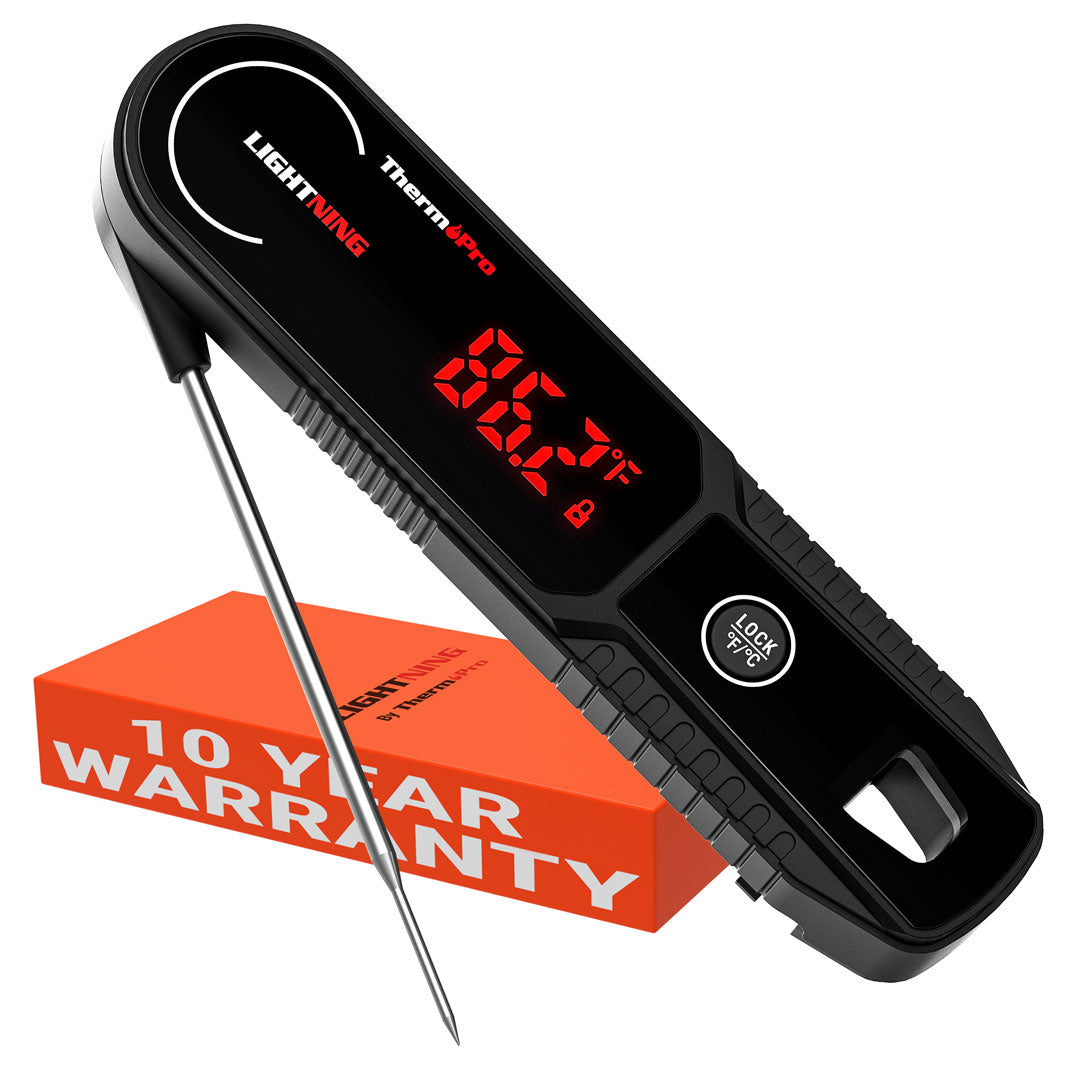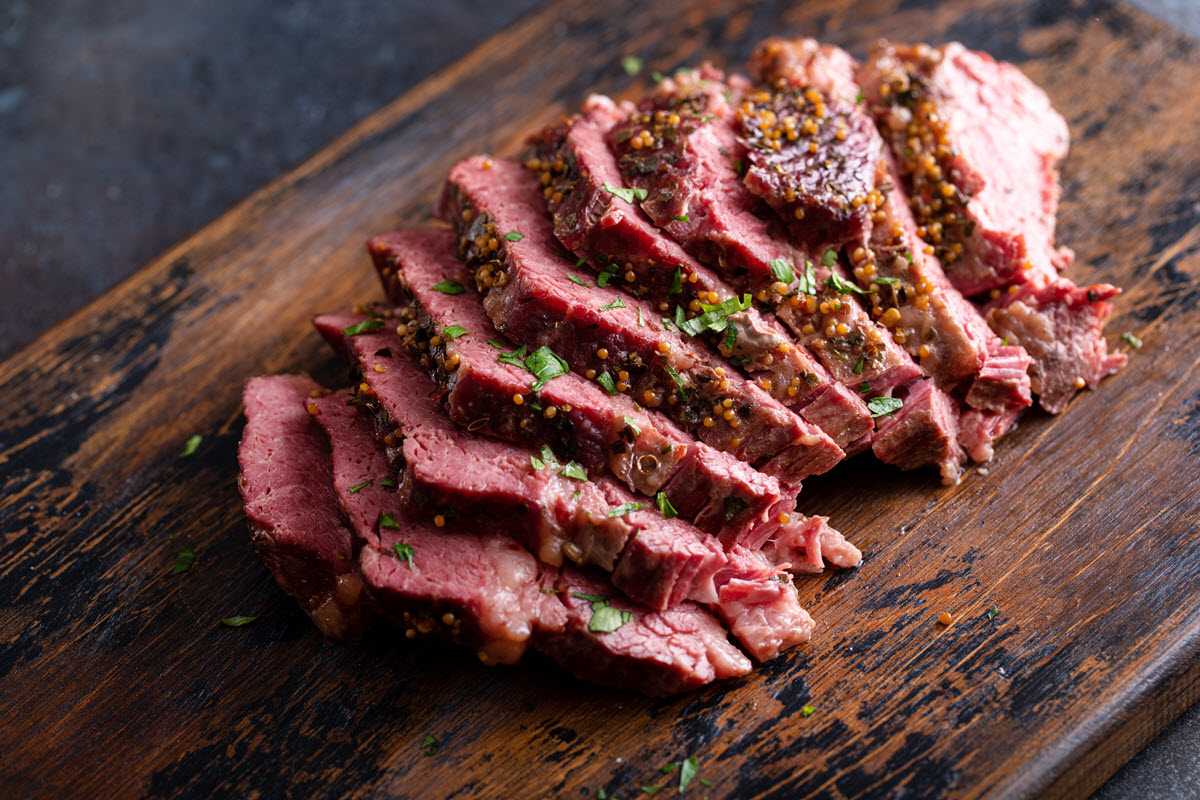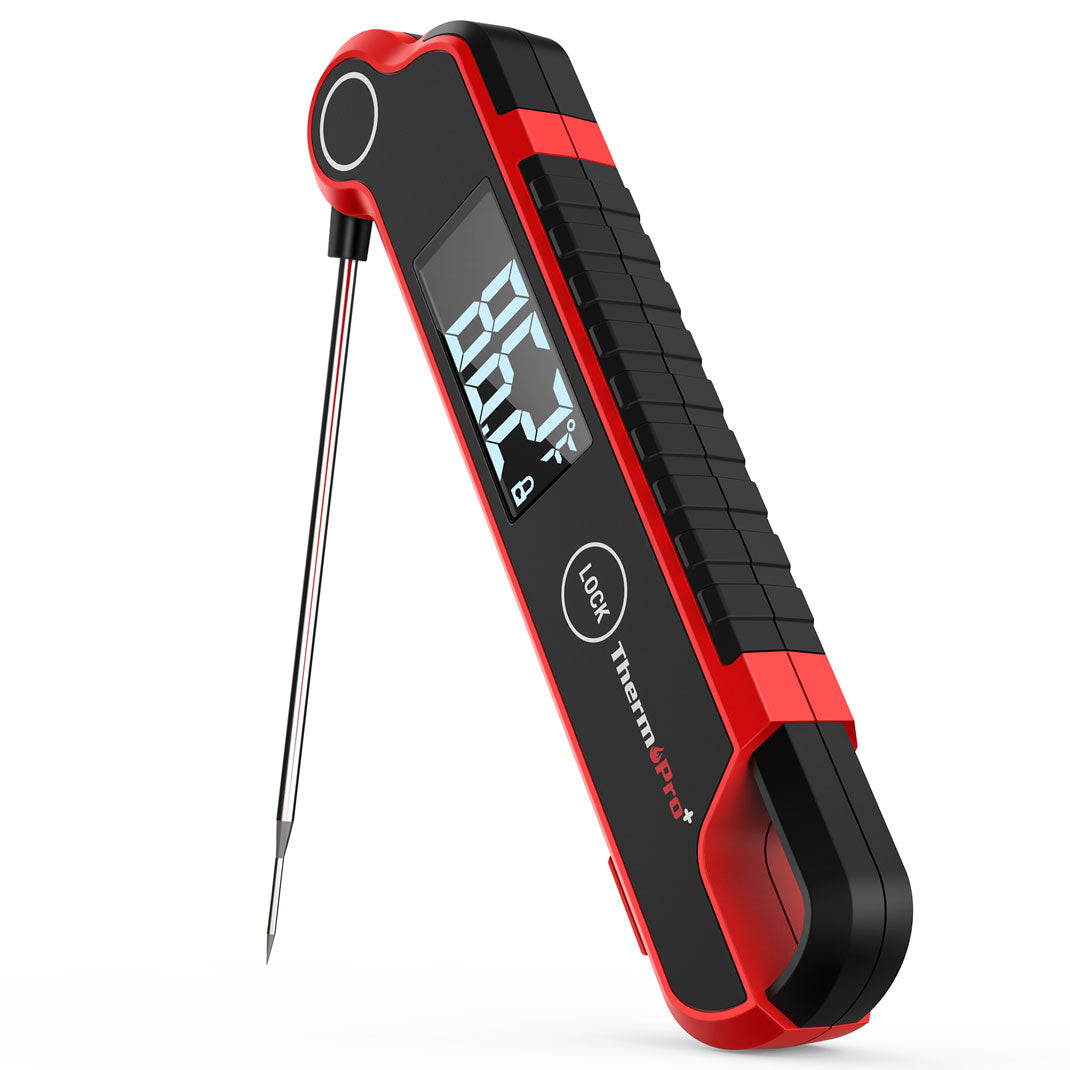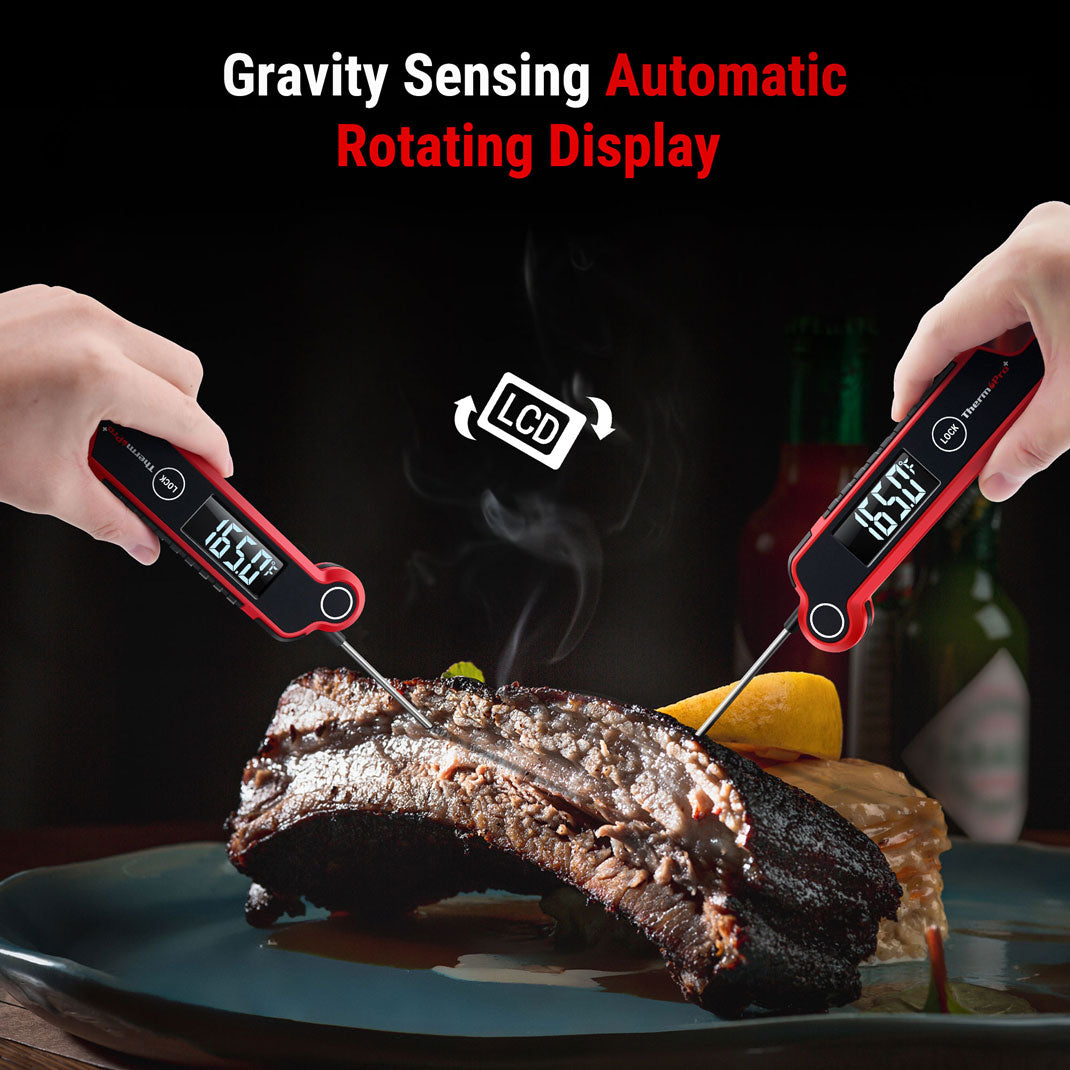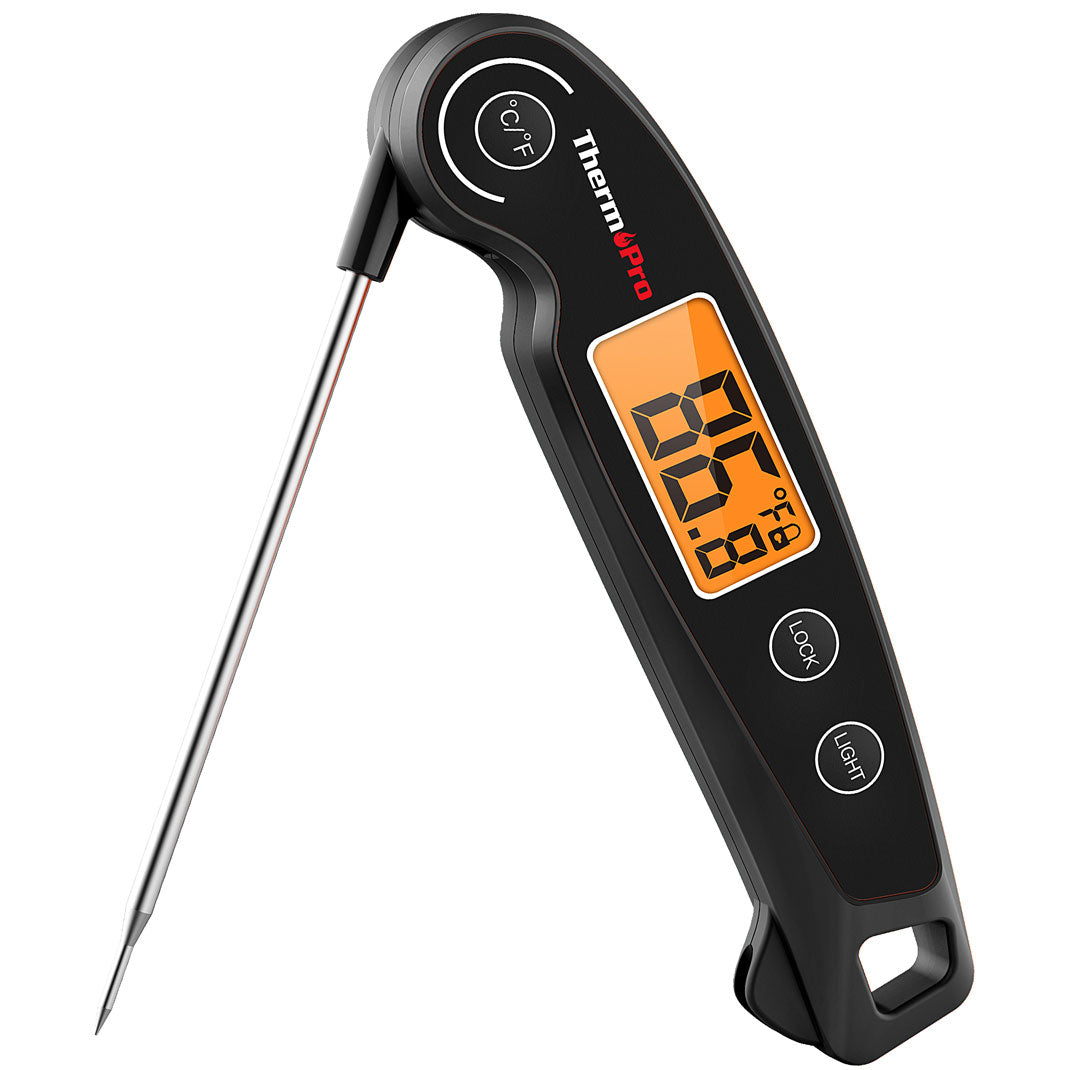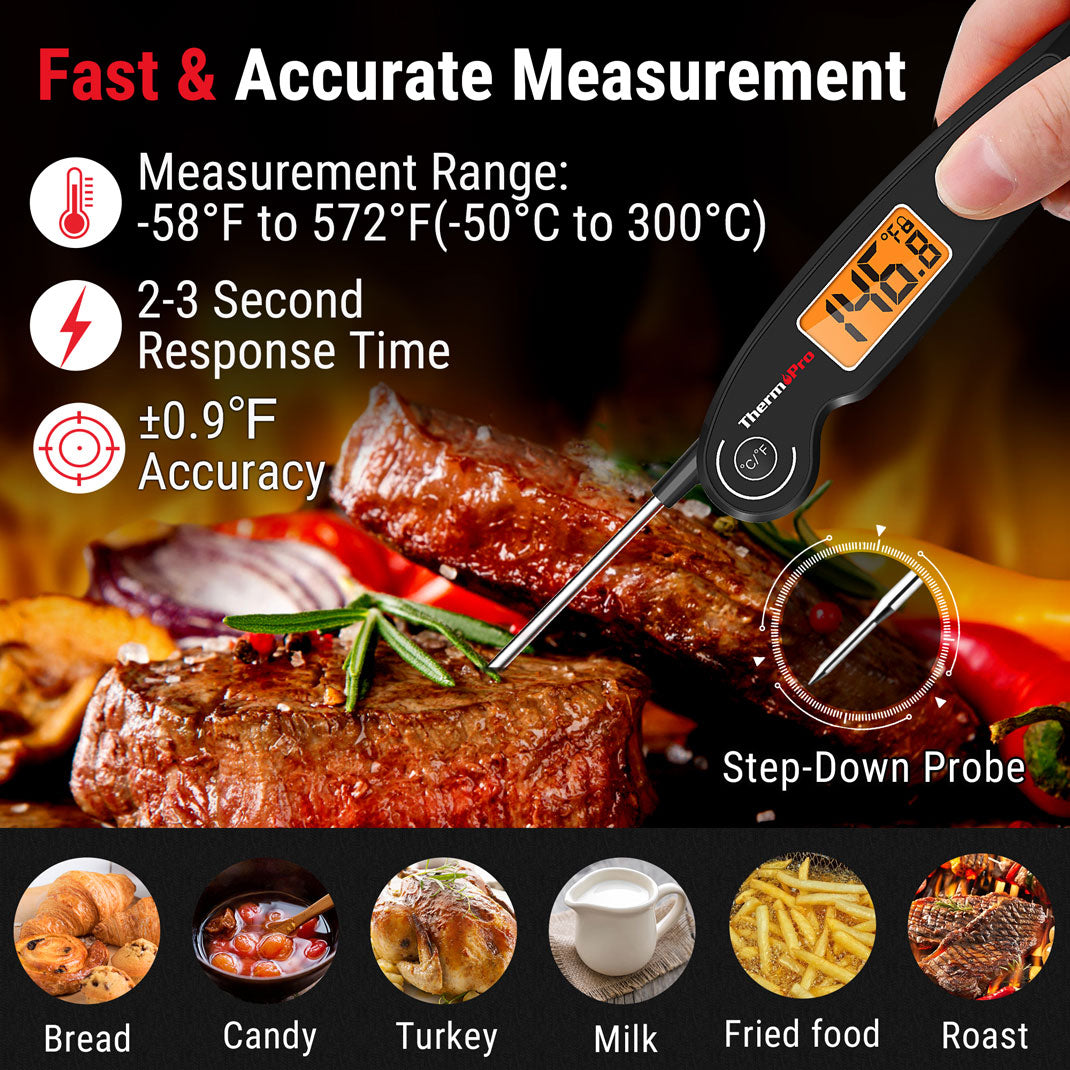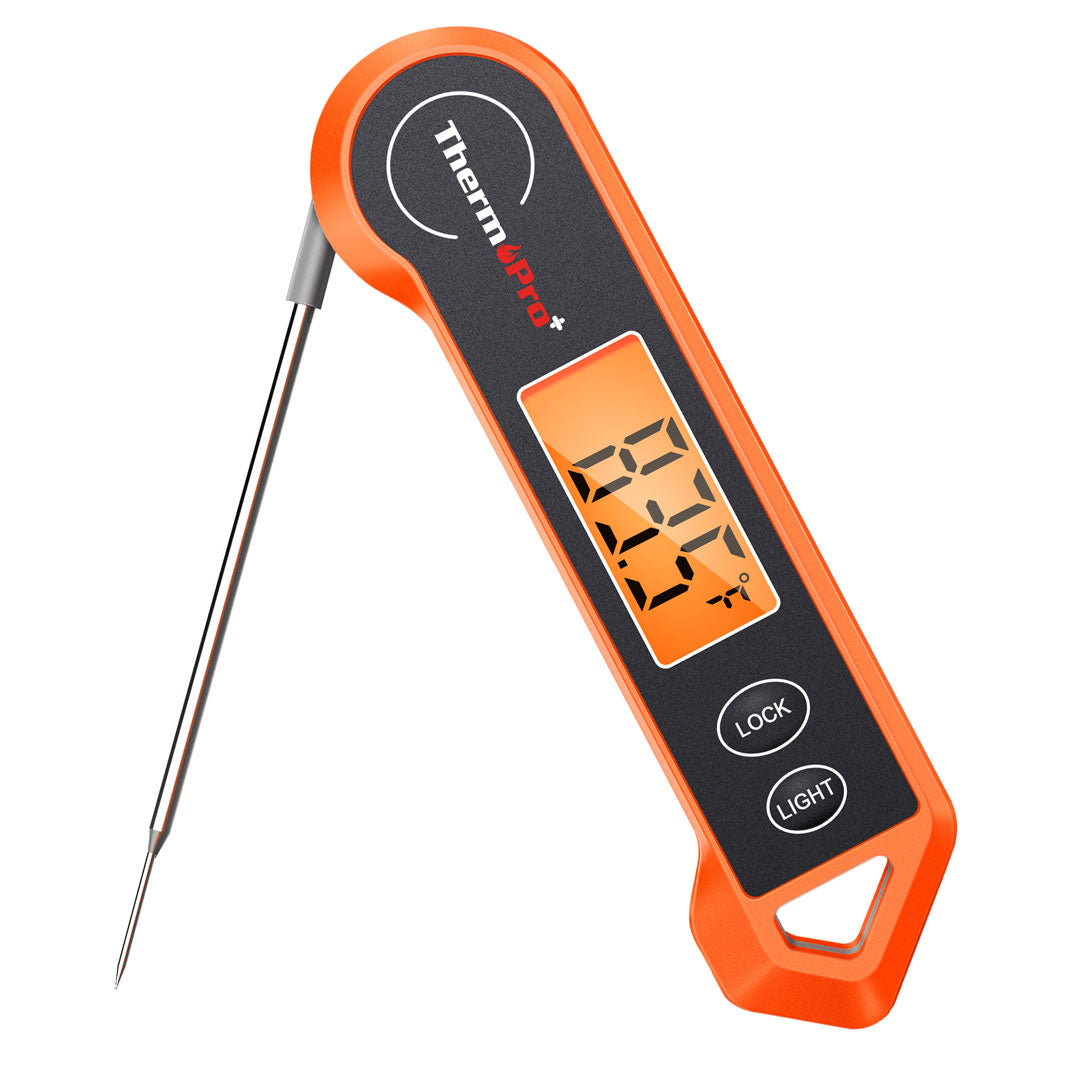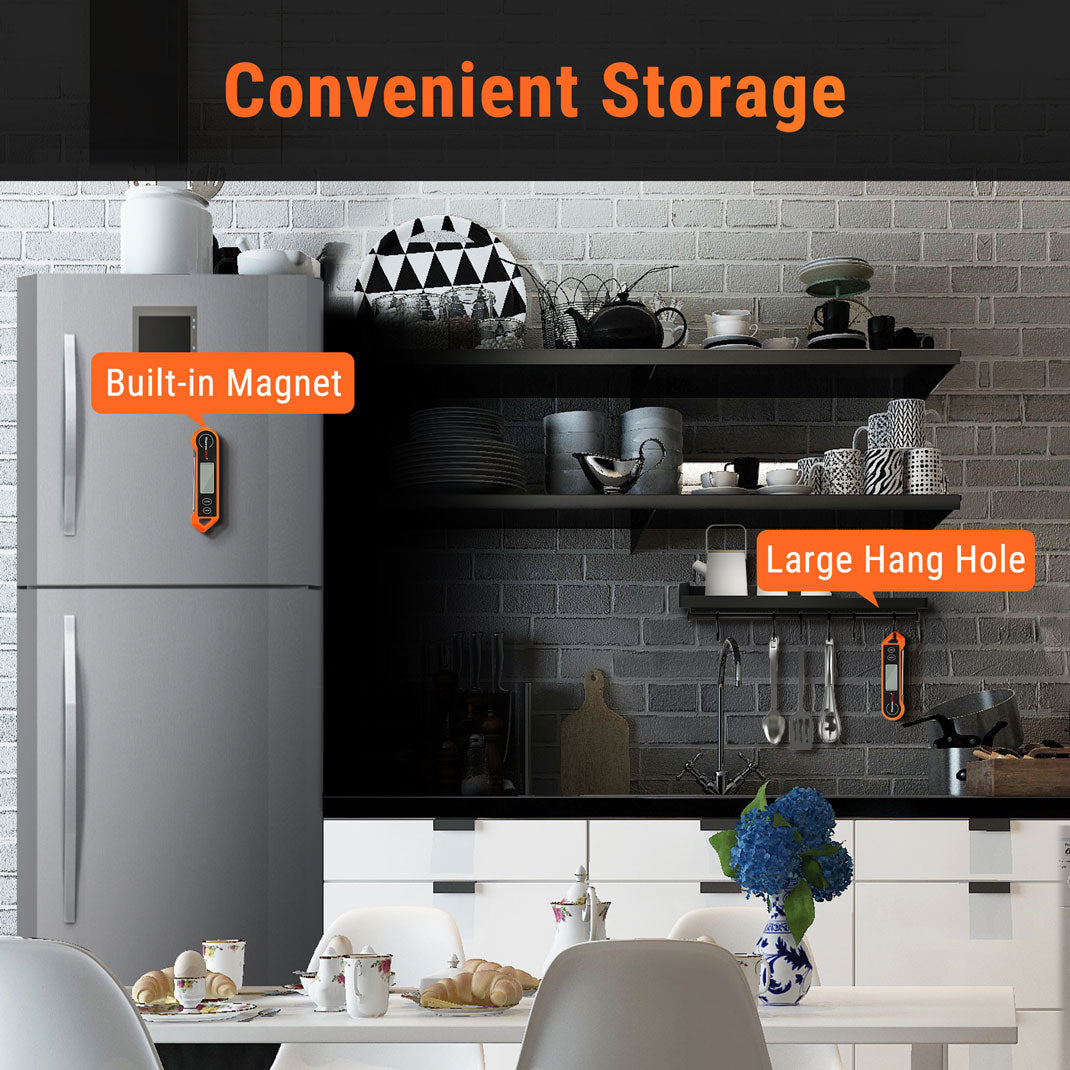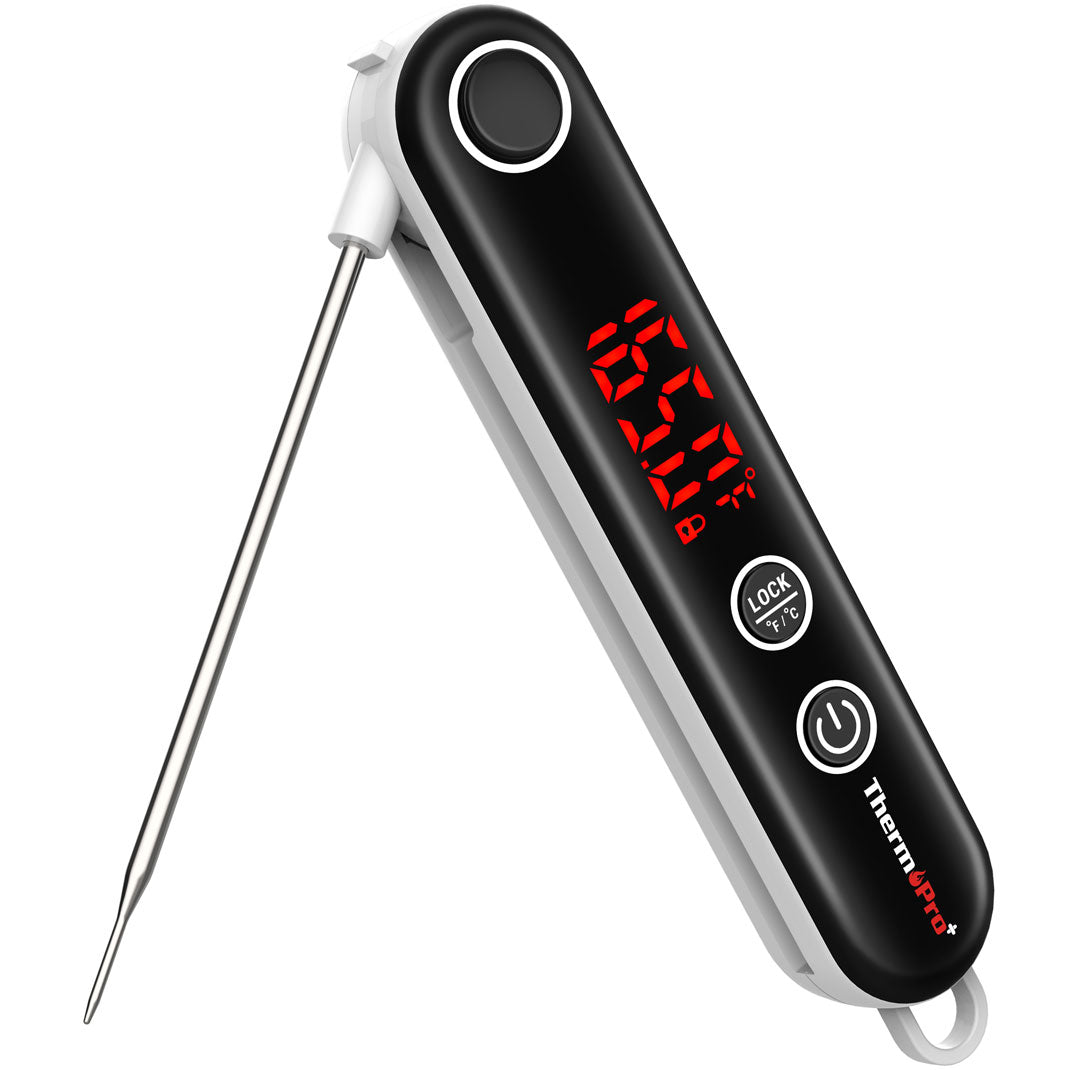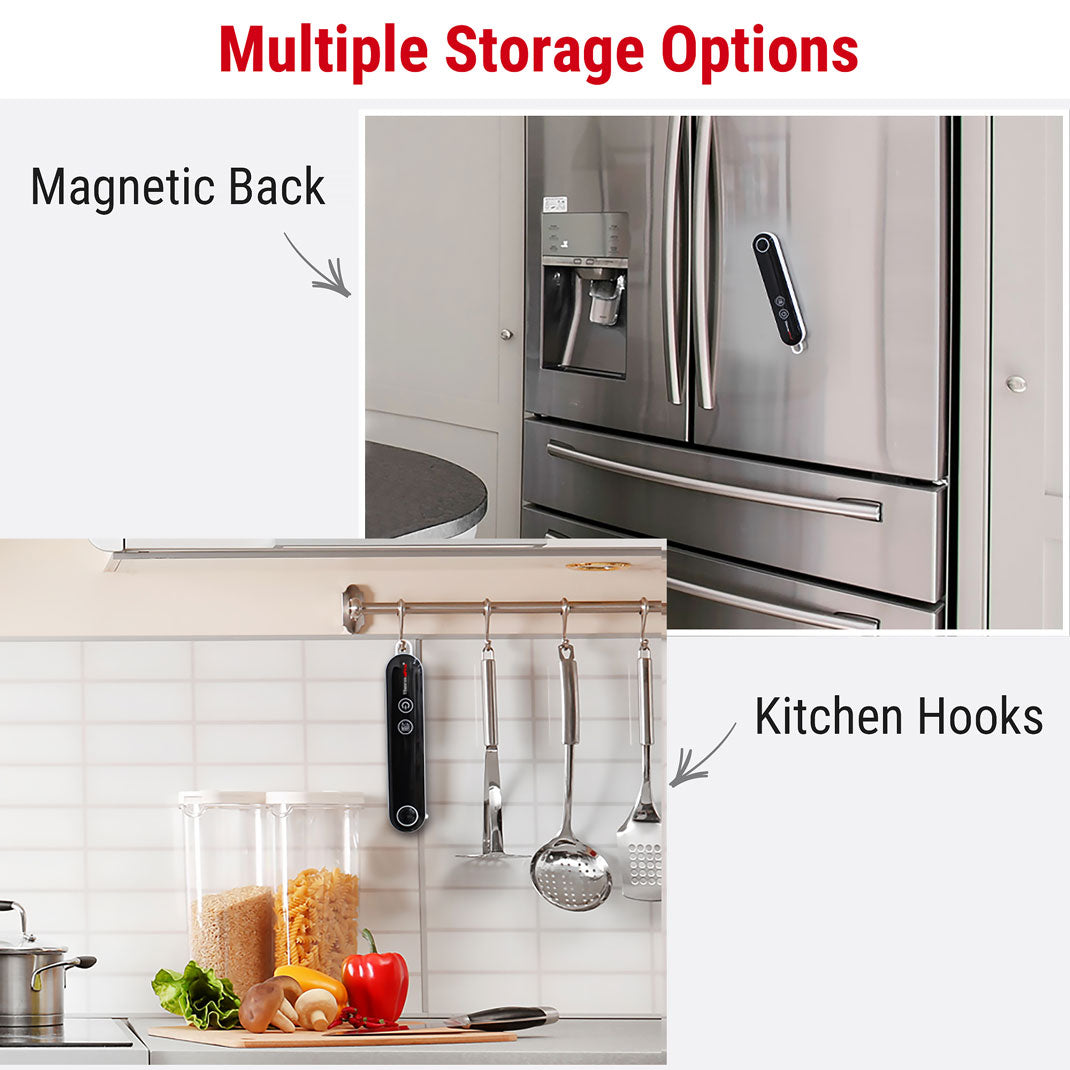Raw vegetables are a staple of many healthy diets. They provide the highest concentration of vitamins and minerals to those that consume them. However, potatoes are an exception to this rule.
For many reasons, raw potatoes should not be consumed in favor of traditional baked, mashed or scalloped versions thereof. Eating raw potatoes can lead to many unpleasant health problems and complications.
By and large, baked potatoes are delicious, and the perfect baked potato temperature is easy to achieve using the proper kitchen equipment. Here are some reasons you should avoid raw potatoes in favor of the cooked versions, along with how to make the perfect baked potato with a food thermometer.

Will Raw Potato Make You Sick?
Solanine is a toxic compound contained in raw potatoes. This compound can make humans very sick if ingested raw. Potatoes that have turned green – even when cooked – should be avoided because of this compound. At a minimum, consuming a potato that is raw will cause bloating and gas. They are also not as palatable, have a starchy texture and a bitter taste. There are a number of reasons that consuming a raw potato is unhealthy:
Carbohydrate structure
Carbohydrates provide energy and fuel to the body, but the human digestive system is not capable of properly breaking down raw (or resistant) starches. Because of this factor, the carbohydrates in potatoes – which are very starchy – are practically indigestible before a potato is cooked and do not have much if any, nutritional value.
They also do not provide fuel or energy to the body. This is why cooking potatoes are preferable since they undergo a process known as gelation. This is a process through which starches become digestible by the human body. This process also takes place in rice and other grains which are also very rarely eaten raw.
Anti-nutrients
Anti-nutrients are found in real potatoes and they are known to inhibit enzymes in the body. This causes the body to work harder to consume nutrients in other foods. Studies have shown that cooking potatoes significantly reduces or eliminates anti-nutrients altogether. It should be noted that it is the potato peel that is the primary source of anti-nutrients.
Pathogens
A universal factor in consuming raw foods is the presence of pathogens, which are the bacteria where foodborne illnesses originate. Because there is no source of heat to kill the pathogens in raw potatoes, they are often ingested raw which can lead to an infection in the body.
Because potatoes often have soil on their peels, it is recommended that you at least wash the potatoes if you do choose to eat them raw and peel them since bacteria from the soil can easily be ingested if you do not.
Sprouts and Green Color
Potatoes that have been stored for long periods of time or which are exposed to sunlight begin to develop sprouts. This is an indication that toxic substances have begun to multiply within the potato. Adding to the problem, chlorophyll – the pigment that causes the green color in potatoes – is produced when potatoes are exposed to sunlight.
Green potato leaves are very toxic and should not be consumed, while sweet potato leaves are safe to eat. Potato plant poisoning is often the result of the consumption of sprouts green tubers and leaves.
Toxic compounds
Toxic chemical compounds known as glycoalkaloids (Solanine and Chaconine) are contained in green potatoes. If consumed in high amounts, they are toxic. Digestive issues, increased sensitivity, itchiness, and drowsiness may all develop if glycoalkaloids are consumed in large amounts. These glycoalkaloids are substantially reduced when potatoes are baked or boiled.
What Happens If You Eat a Slightly Raw Potato?
The effects of eating a slightly raw potato differ greatly from a raw potato. The cooking process results in gelation and also a chemical reaction between amino acids known as the Malliard effect takes place.
This is where the heat causes the sugar level in the potato to decrease. The main issue to expect with ingesting a slightly raw potato is digestive issues. Resistant starch found in raw potatoes is known to be a contributing factor to digestive problems. The reason for this is that resistant starch serves as a prebiotic.
Prebiotics are fermented by the bacteria that are beneficial in the gut that in turn leads to the production of gas in the human colon. When prebiotics and resistant starches are consumed, the main side effects are bloating, gas and stomach discomfort. These are the main issues you can expect when eating a slightly raw potato.
What Temp to Bake a Baked Potato?
Potatoes are considered done if they are tender when they are pierced with a utensil such as a fork. If the fork slides out easily with no resistance, the potatoes are fully cooked.
The commonly accepted temperature for baking potatoes in the oven in Celsius is 98 degrees. It is recommended that you use a ThermoPro thermometer to check to see if the potatoes are done or you may squeeze the middle of the potato as well.
Be sure to use an oven mitt or potholder if you choose to do this to avoid burning your hand. In order to achieve the 98 degrees internal temperature, the potato should be baked for 40 for approximately one hour. Depending upon the size of the potato, you may need to cook it for more or less time.
If you are in the food-service business, where food is kept warm before serving, cooking the potato 140°C is recommended since the potato continues cooking and will reach 98°C by the time it is served.
How Did You Know If Potatoes Cooked?
Potatoes are considered to be done when they are tender the entire way through. Poke the potato with a sharp utensil in the kitchen such as a paring knife, fork or skewer. If any of those utensils easily slides to the center without resistance, the potatoes are considered to be done. The utensil should come out dry and not moist.
One of the most important aspects of achieving baked potato temp is the use of the proper kitchen equipment. For this purpose, the ThermoPro thermometer is the choice of professionals. The ThermoPro thermometer provides a high level of food safety and precise heat control. Before starting you will need to calibrate your ThermoPro.
For this purpose, you will need a tall clear glass, ice cubes (crushed ice is preferable), cooled water and a spatula or spoon, In order to properly calibrate your ThermoPro thermometer, follow these steps:
- Fill a glass to the top with crushed ice if possible to the top and allow to sit so the temperature can become stable
- Fill the glass with cooled water slowly, leaving some room at the top
- Allow sitting for 1-2 minutes
- Place the ThermoPro into the slush and do not allow the ThermoPro to touch the sides of the glass or the bottom
- On the ThermoPro, check that the reading is 32 degrees Fahrenheit. If so, the ThermoPro has been properly calibrated
Testing the internal temperature of a baked potato with a ThermoPro is simple. When you believe your potato is done, open your oven and slide the baking rack out so that you do not have to reach into your oven with your ThermoPro.
Next, make sure the ThermoPro is on and insert the ThermoPro into the center of the baked potato. If the ThermoPro goes in without resistance, the next step is to check the temperature. If the reading is 98 degrees celsius, you have a perfectly cooked baked potato that is ready to eat!
Tips for Making a Perfectly Baked Potato
Step 1. Select your potato. The thick skin and high starch content of the Russett potato make them the choice for the perfect baked potato. These are the top two qualities to look for when selecting a potato use for this purpose. The high level of starch enables the potato to bake evenly. It creates that well-loved fluffy texture that allows sour cream and butter you and melts into it perfectly.
Step 2. Wash the potatoes and dry them. Using a towel, drying the potatoes is the best method. They must be completely dry prior to advancing to the next step. Allow them sufficient time to air dry. Washing them in the morning is preferable and then allowing them to dry during the day is the best approach.
Step 3. Massage potatoes with salt and oil. One suggestion is to oil your hands and then begin rubbing the potatoes. From there, sprinkle some salt evenly around the potato. One of the keys is not to use olive oil because it will begin to smoke once you achieve the perfect baked potato temperature. Some recommended oil is canola oil, vegetable oil, peanut oil, pure olive oil or grapeseed oil.
Step 4. Poked potatoes with a fork. Stab the potatoes approximately eight times evenly around. Make sure you get full penetration into the potato by the fork to about a depth of 1/8 of an inch. This is critical so the steam may exit the potato during the baking process. This is what makes the inside of the potato perfect when baking is completed.
Step 5. Preheat the oven and make sure it is hot. Do you have a most beautiful temperature before placing the potatoes inside? Making sure that you placed the potatoes in a sufficiently hot oven is one of the tricks of this process.
Step 6. Bake directly on the rack. Make sure you use a baking rack and a pan. This is critical for air circulation in and around the entire potato.
Step 7. The most commonly asked question is what temperature do you bake potatoes in a convection oven? To arrive at a perfect baked potato internal temperature of 98 degrees Celsius, your oven should be set at 218°C. Your potato will come out fully roasted with tasty, flavorful skin, a fluffy interior and crispy on the outside. The high temperature ensures an even cooking throughout and avoids an under the layer of skin that is undesirable. Use the following guidelines to adjust time and temperature when necessary
- 176°C if cooking approximately 75 – 85 minutes
- 190° if cooking 60 – 70 minutes
- 204 degrees if cooking 50 – 60 minutes
Conclusion
The benefits of cooking your potatoes far outweigh those of potatoes that are eaten raw. The cooking process removes all of the toxins and bacteria which are harmful to the human body. None of these items are necessary for human ingestion and a cooked potato is higher in nutrients and better in taste.
When cooking your potato to its desired temperature, make use of the ThermoPro meat thermometer to test what temp to cook a baked potato for perfect cooking. Once you have achieved the perfect baked potato temperature, there is nothing left to do but eat and enjoy!






 288 Comments
288 Comments








